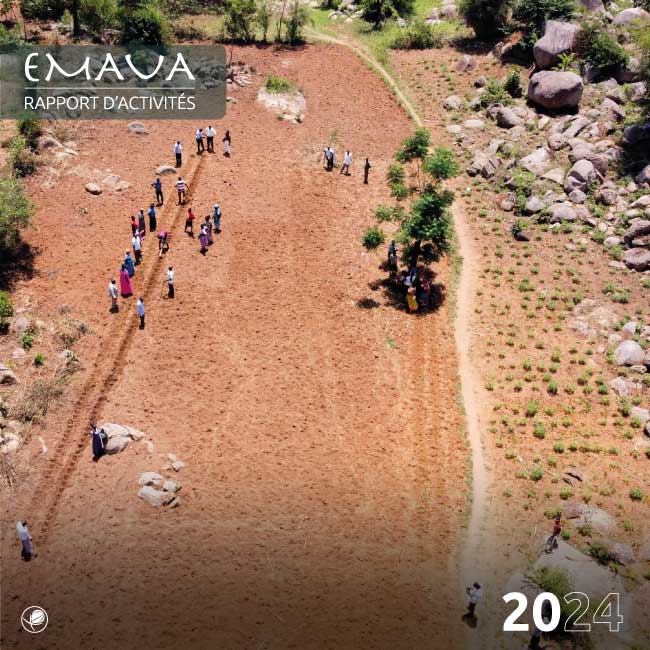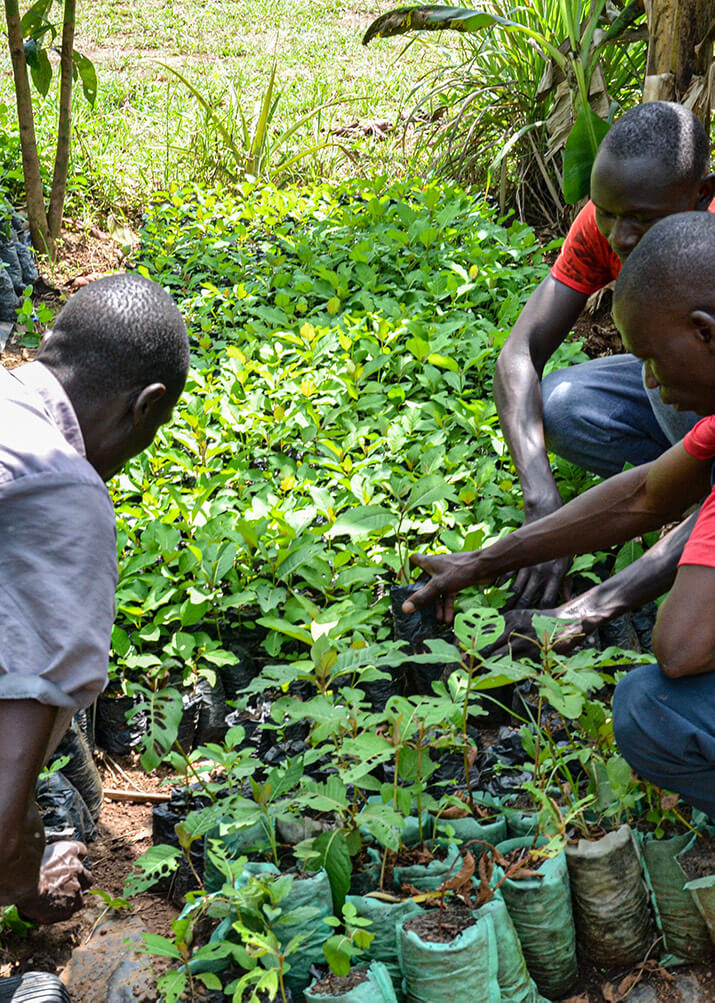How Cajanus cajan Changed Our Reforestation Approach
Imagine birthing a child and abandoning them to fend for themselves. Exposed to a whole new unknown world, their chances of survival are tremendously reduced. The same phenomenon happens in tree planting. Millions of trees are planted across the globe, but most of them succumb due to poor cultivation practices. Just like any other living thing, trees face stressful challenges! We cannot just simply plant trees; rather, we should devise ways that ensure optimal growth rates for trees planted in an effort to counter deforestation. At EMAUA, we introduced the Cajanus cajan into our plant/tree collection in April 2017, to not only boost the trees’ survival rate but also stand by a holistic approach to reforestation.
“We can now plant trees that would be impossible to grow before the introduction of Cajanus due to the sensitivity and specificity in their growing conditions,” says Julien Kauer- founder of EMAUA. Such an instance was the difficulty to germinate the Khaya anthotheca commonly known as the mahogany, a vulnerable rain forest tree. However, since EMAUA introduced the Cajanus, there is a canopy formation that has favored successful germination of the Mahogany tree- 4381 trees since 2020- among other species.
What is Cajanus Cajan
Cajanus, pigeon pea, is a leguminous perennial plant that grows in semi-arid and tropical regions, which are typically hot/humid. The plant is fast-growing reaching a height of 1.5 m within 4 months. Some varieties can reach 3 m in height. The plant establishes a deep root system extending 1 m into the soil. It is grown for food, fuel source, and a cover crop.
Why Its Selection?
Expeditious growth- The Cajanus is a fast-growing plant that has a germination rate of 2 weeks and matures within 3-4 months, reaching a height of 1.5 meters. Due to this speedy growth, the plant forms a quick canopy. Its fast-growing property makes it a gem for our reforestation project as it provides an efficient shading solution for the saplings, thus increasing their survival rate.
A heavenly umbrella– We all know that trees grow and live outside. However, high temperatures, the hot sun, and other extreme conditions cause injuries to them. Therefore, planting the Cajanus before transplanting our trees ensures that a shade/canopy is already formed to protect the saplings from the sun. To achieve a denser shade, we instruct our beneficiaries to plant the pigeon pea seeds at ½ m apart with approximately 3 seeds per hole. The shade maintains soil humidity during dry seasons because it reduces ground-water evaporation.
25% of all living things are found in the soil. Therefore, maintaining soil health translates to increased soil fertility and optimal growth of saplings.
Drought resistant- The plant thrives in minimal rainfall, keeping its leaves green and steady even during droughts. This allows for the plant to continuously provide shade for our saplings throughout the drier seasons and ensure optimum growth and survival.
Nitrogen fixation– The plant provides saplings with nitrogen and organic matter from shaded leaves, thus improving soil fertility and enhancing the growth of other trees. The plant also establishes deep root systems, ensuring that it does not compete with the saplings, thus enhancing tree growth.
Food source– Pigeon peas, locally known as ‘mbaazi’, are edible seeds harvested from the pods of the Cajanus plant. The seeds are a high plant protein food source. Aside from consumption, beneficiaries can also sell the seeds to earn an income. Such initiatives increase self-sufficiency among local communities.
Fuel source– The dry stalks from the Cajanus branches can be gathered and stored for firewood, a major fuel source, especially among the rural community around EMAUA. Providing firewood solutions to local communities significantly reduces the rate of deforestation while increasing reforestation.
Take-Home Tip
Ensure to purchase ‘young’ seeds for a good germination rate. Despite a sloppy first attempt, our second batch in 2021 has a +90% germination rate, and the trees are enjoying the shade. We distribute Cajanus seeds to all our beneficiaries to ensure uniformity and optimal growth.



